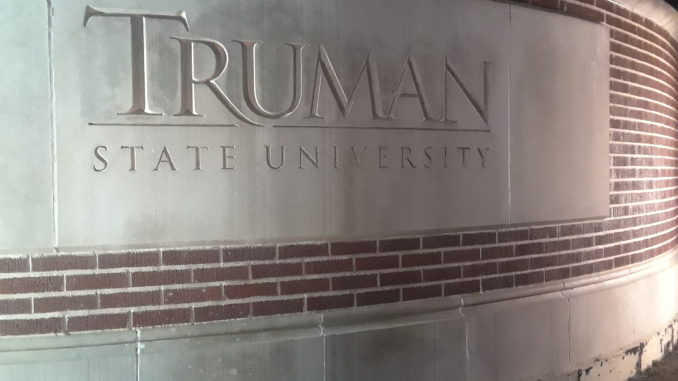
Truman State University has seen a decrease in its enrollment of full-time students.
Truman State University President Sue Thomas said at the recent Faculty Senate meeting that university enrollment is down around 250 new students and around 400 full-time enrolled students overall. She also said the retention rate has been gradually decreasing over the years.
Thomas said the university has officially signed a contract with the consulting firm SEM Works to aid the university in combating this decreased enrollment. She said the consultants plan to look extensively into the university’s enrollment and perform a strategic enrollment management audit to create an enrollment plan. She said SEM Works will be interviewing students and faculty, as well as surveying both prospective students and those who decided not to attend Truman.
“They have lots of experience with universities like ours,” said Thomas. “They understand liberal arts institutions. They understand institutions in rural areas. They were by far the unanimous choice; they were heads and tail above everybody else.”
Vice President for enrollment management Gina Morin said SEM Works will help the university overcome enrollment challenges such as appealing to a new generation of students, the demographics of the Midwest and Truman’s more rural location. She said Truman is taking initiative by putting things in place quickly and strategically to combat this decrease, and she thinks the university can turn the enrollment numbers around.
Morin said the decreased full-time enrollment can be attributed to a combination of factors. She said the main factor was the decrease of freshmen students and transfer students, but the lower retention rate, a higher number of students graduating in four years and more students taking advantage of the student leave policy are also affecting the full-time enrollment numbers.
“We look at this decrease in the full-time enrollment seriously, and view it as temporary,” said Morin. “We don’t see this as business as usual, or that this is going to be the status quo from here on out. We don’t view it as that. We really really believe that this year is an anomaly.”
